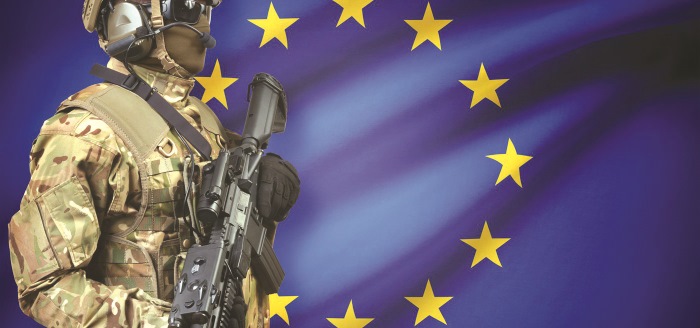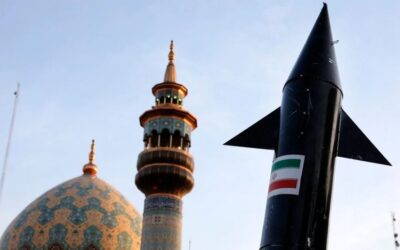The Director of the Organisation for Joint Armament Cooperation (OCCAR), Mr. Joachim Sucker, has signed a third amendment to…

The European Commission emphasizes the need to strengthen the defence capabilities of all EU countries and proposes an emphasis on drones, submarines, tanks and cyber defence. In this context, on Wednesday it presented a European plan for joint defence procurements.
In response to the 11 March Versailles European Council request for “strengthening Europe’s defence capabilities in the light of the Russian military offensive against Ukraine,” the Commission presented a plan to fill gaps in European defence in a coordinated manner and strengthen the European defence industry.

The EU is stepping up and building a stronger defence industry.
We are increasing military spending and coordination among EU countries to close the current defence investment gaps. Thread ↓#EUdefence
— European Commission 🇪🇺 (@EU_Commission) May 18, 2022
“Russia’s unprovoked aggression against Ukraine has a significant impact on European defence, leading to increased military spending by Member-States,” the Commission said.
As a direct result of the Russian invasion of Ukraine, the member-states announced increases in their defence budgets, totalling an additional 200 billion euros for the coming years. However, the Commission notes that these increases come after years of substantial cuts and insufficient investment. From 1999 to 2021, EU joint defence spending increased by 20% compared to 66% for the US, 292% for Russia and 592% for China.
Taking into account the analysis of investment gaps carried out by the European Defence Agency, the Commission identifies three urgent priorities:
- Replenishing stockpiles;
- Replacing old Soviet-era systems; and
- Strengthening air and missile defence systems.
The Commission proposes a comprehensive list of strategic investments in air, land, sea, space and cyber defence.
Also read: European Union | Document on Joint Defence Strategic Compass by March
Air and missile defence is one of the most pressing gaps. The Commission proposes investments in drones and mini-drones with surveillance capabilities. It also proposes to deploy the Eurodrone Male Rpas, produced in cooperation with Germany, France, Italy and Spain. It also suggests the upgrade of multi-role fighter aircraft in the EU.
On land, the need to upgrade the existing reserves of Main Battle Tanks and Armored Vehicles as well as next-generation systems, in the light of the return of large-scale, high-intensity warfare to Europe and in particular a wide range of anti-tank and artillery systems.
At sea, further strengthening of Member-States’ naval forces remains crucial in the light of the increasingly controversial Black, Baltic and Mediterranean Seas and the need to strengthen the power and offshore capabilities and the denial of access and coastal defence. Investments in frigates, submarines and patrol corvettes are needed.
In the medium- and long-term, ISR capabilities and the protection of maritime communication lines will benefit from high-standard interconnected vessels reinforced with unmanned platforms for surface and submarine control and electronic warfare.
Also read: nEUROn | The European STEALTH UCAV developed with the contribution of HAI – Photos & VIDEO
The Commission also emphasizes that the war in Ukraine has further demonstrated the importance of secure satellite connectivity, including a highly secure European connectivity program and quantum encryption.
Protecting the EU’s space infrastructure from threats is also a growing priority. Space data can also be a key factor in a robust early warning system, which is required to detect where rockets are launched from (e.g. ballistic, hypersonic) and monitor them.
In the near future, the Commission will set up a joint defence procurement team to work with Member-States. An EU short-term way to strengthen defence industrial capabilities through joint procurement will be proposed for rapid adoption, to help Member-States fill the most urgent and critical gaps in a cooperative manner. The Commission is ready to commit € 500 million from the EU budget for two years.
This short-term instrument will pave the way for an EU framework for joint defence procurement. To this end, in the autumn of 2022, the Commission will propose a regulation on the European Defence Investment Program (EDIP). It will lay down the conditions for the Member-States to set up a European Defence Capabilities Consortium (EDCC). The idea is to exempt joint contracts from VAT, but also to convince the European Investment Bank to strengthen its support for the European defence industry.
“The proposed measures are expected to make the EU a stronger international partner, also within NATO, which remains the cornerstone of its members’ collective defence,” the Commission said in a statement.
Also read: German Defence Minister | Proposal for European military force
READ MORE
HNDGS | Bilateral Joint Combined Exchange Training (JCET) between Greece – USA – Photos
The Bilateral Joint Combined Exchange Training (JCET) between the Armed Forces of Greece and the US was completed on Friday…
INVESTING IN DEEP-TECH: DUAL-USE TECHNOLOGIES | The NIF and DIANA in Greece
The Information Conference on “Investing in Deep Tech: Dual-Use Technologies” held at the Hellenic Armed Forces Officers’ Club…
Lambda (λ) Automata | Autonomous surveillance solutions at “Investing in Deep Tech: Dual-Use Technologies” conference
The recent presentation of the start-up company Lambda Automata at the “Investing in Deep Tech: Dual-Use Technologies” conference…
VELOS ROTORS | Velos V3 UAS introduced as ideal example of dual-use systems
The “Investing in Deep Tech: Dual-Use Technologies” conference held at the Hellenic Armed Forces Officers’ Club in…
OCCAR | Additional Night Vision Goggles
The Director of the Organisation for Joint Armament Cooperation (OCCAR), Mr. Joachim Sucker, has signed a third amendment to…
Iraq | Εxplosion at military base south of Baghdad
A major explosion at a command post of the Iraqi Army took place today Saturday about 50 kilometers south of Baghdad…
Burkina Faso | France’s frustration over deportation of three diplomats
Burkina Faso has accused three French diplomats of subversive activities and ordered them to leave the country within 48 hours…
Middle East | Heavy explosions in Iran
Israel retaliated against Iran for Tehran’s attack on Israeli territory over the weekend, a US administration source said.





















